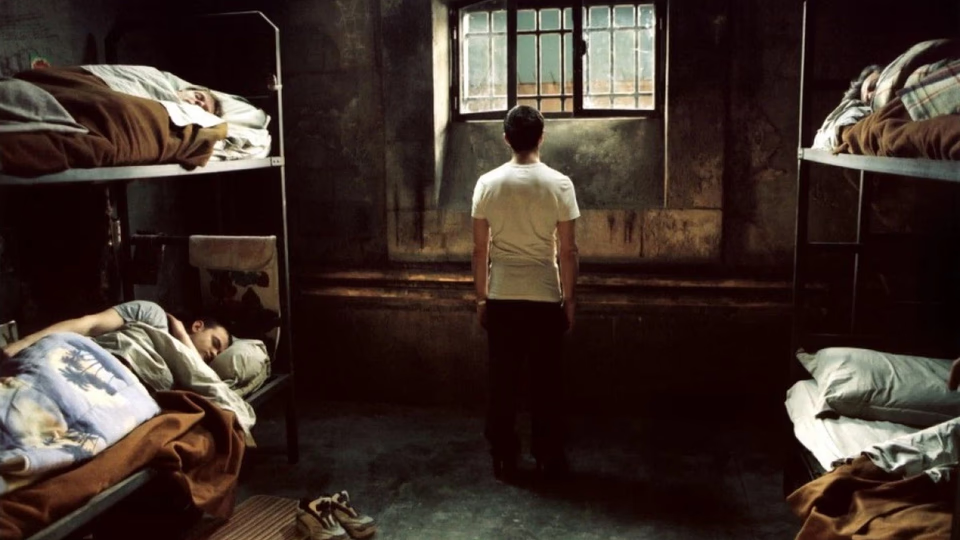Malefique

Maléfique opens with a man named Carrère saying goodbye to his wife and young son. He is a white-collar criminal and today marks his first day in prison. We meet his cellmates: Lassalle, an older librarian of few words, Marcus, a brash young man whose large breast implants clash with his brawny physique, and Pâquerette, a man-child with a penchant for eating things.
After establishing these characters and their interpersonal dynamics, the plot kicks into gear. The men discover a moldy diary that doubles as a spell book. Eager to escape, the men try some incantations but discover magic carries a high cost.
I relished this premise. Taking four desperate (but not fierce) men and dangling a supernatural means of escape lies right up my nihilistic alley. The trap-like plot burrowed deeper into my wheelhouse.
The cast performs well. As Carrère, Gérald Laroche’s underplayed transformation into a bitter convict serves as a grounded audience surrogate. As Lassalle, Philippe Laudenbach adds gravitas, communicating volumes with his weary looks.
It had me riveted until the third act. The strong setup had me hoping for a knock-out finale. Instead, the story devolves into a predictable version of The Monkey’s Paw, with a Tales from the Crypt ending.
Imagine a film that took these characters—one imprisoned in his body, one in his mind, one in his wealth—and explored their prisons and the lengths they would go for freedom. Maléfique is not that movie. It’s not a bad film, just one that falls short of its potential.